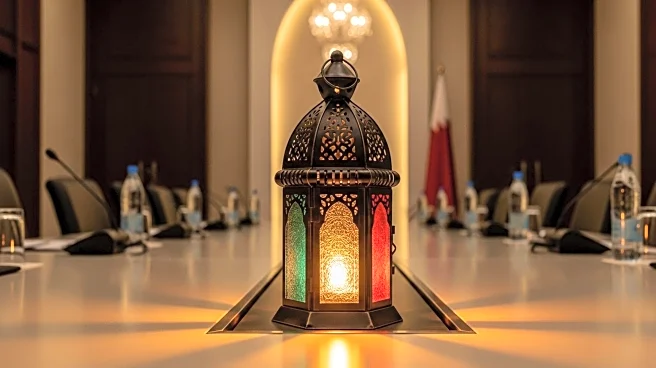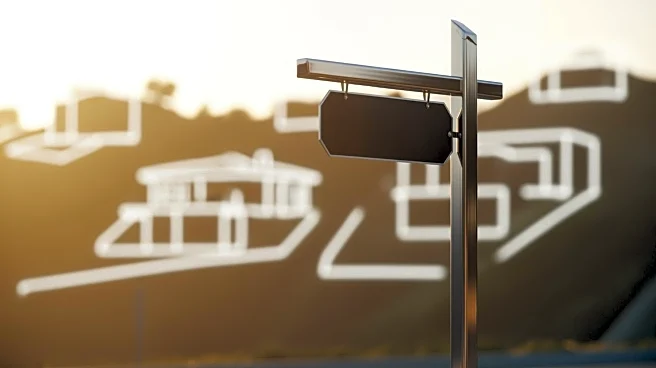What's Happening?
Arab foreign ministers gathered in Doha, Qatar, to formulate a unified response to a recent Israeli missile attack aimed at senior Hamas leaders. The strike occurred in a residential area, resulting in casualties, including a member of Qatar's internal security forces. The ministers are preparing for an emergency summit to discuss further actions, as the attack disrupted discussions on a U.S.-backed cease-fire proposal for Gaza. Israel has not commented on the success of the strike, while Hamas reported no fatalities among the targeted officials.
Why It's Important?
The meeting underscores the heightened tensions in the Middle East, with potential implications for regional stability and international relations. The attack could strain diplomatic efforts and affect U.S. interests in the region, particularly regarding peace negotiations. Arab nations may seek to strengthen alliances and coordinate a collective stance against Israeli actions, impacting geopolitical dynamics and possibly leading to increased support for Hamas. The situation could also influence global energy markets, given Qatar's role as a major gas exporter.
What's Next?
The emergency summit in Doha is expected to bring together leaders from Arab and Islamic countries to discuss coordinated responses. Potential outcomes include diplomatic measures, economic sanctions, or calls for international intervention. The summit may also explore avenues for resuming peace talks and addressing humanitarian concerns in Gaza. Stakeholders, including the U.S., may face pressure to mediate and prevent further escalation.









